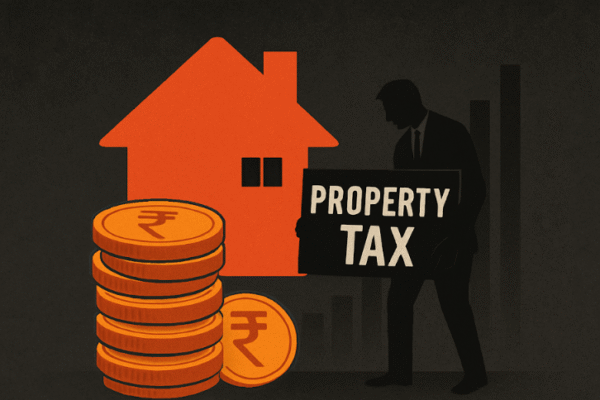
Nagpur: At a time when the Nagpur Municipal Corporation (NMC) pleads empty coffers for critical development works, a damning reality has surfaced, 261 prime properties across the city have brazenly defaulted on property tax payments of more than Rs 25 lakh each, pushing the total arrears to a staggering Rs 442.34 crore.
This colossal backlog could have transformed the civic body’s finances and propelled long-stalled projects like the Nag River Pollution Abatement initiative, yet NMC has failed to rein in the biggest tax offenders. Officials themselves admit that recovering even a fraction of these dues would change the city’s financial situation overnight.
Data accessed from NMC reveals a trail of massive defaults spread across all zones:
• Hanuman Nagar Zone: 21 properties, Rs 106.02 crore arrears, the single highest in the city.
• Lakadganj Zone: 29 properties, Rs 101.85 crore arrears.
• Laxmi Nagar Zone: 60 properties, Rs 72.29 crore arrears.
• Dhantoli Zone: 48 properties, Rs 63.06 crore arrears.
• Dharampeth Zone: 37 properties, Rs 44.77 crore arrears.
• Ashi Nagar Zone: 24 properties, Rs 29.21 crore arrears.
• Nehru Nagar Zone: 13 properties, Rs 10.93 crore arrears.
• Mangalwari Zone: 23 properties, Rs 10.81 crore arrears.
• Gandhibagh Zone: Rs 2.16 crore arrears.
• Satranjipura Zone: Rs 1.20 crore arrears.
The figures expose not just widespread default but also a culture of impunity.
Civic activists are scathing in their criticism. “When common citizens face penalties for even minor delays in tax payment, how are influential property owners allowed to sit on dues worth hundreds of crores? This is nothing short of systemic failure and political patronage,” remarked a senior activist.
Insiders admit that the rot has been festering for years, weak enforcement, fear of backlash from powerful lobbies, and lack of political will have emboldened defaulters.
NMC’s inability to mobilize resources is already hurting the city. The much-needed Nag River Pollution Abatement Project, which includes construction of five new sewage treatment plants (STPs) and rehabilitation of two existing ones at Mankapur and Mokshadham, is virtually paralyzed for lack of funds. These projects are critical to stopping untreated sewage from flowing into the Nag and Pili rivers, but without NMC’s financial contribution, the state and central agencies are unwilling to release their share.
An NMC official bluntly admitted, “If we recover just a fraction of the outstanding property tax, the city’s finances can be stabilized, and major environmental projects can move forward. But so far, the willpower is missing.”
With crumbling roads, chronic flooding, and poor sanitation already eroding public faith, the ballooning tax arrears now expose the deeper governance paralysis inside NMC. The civic body has submitted a list of high-value defaulters to Municipal Commissioner Abhijeet Chaudhari, who has directed the property tax department to “target the big fish.”
But unless the NMC musters the courage to act against these influential defaulters, Nagpur risks paying the ultimate price, not just in stalled development but also in its dream of reviving the Nag River.
The message is clear: NMC’s financial crisis is not due to lack of resources, but due to its failure to collect what is rightfully owed.














